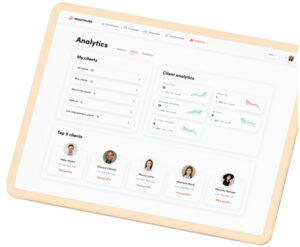Ensuring That All Data Subject Access Requests Are Met

Ensuring that Data Subject Access Request is met is crucial for organizations to demonstrate compliance with data protection regulations and respect individuals’ rights. To achieve this, organizations should establish streamlined processes and dedicated resources for handling DSARs promptly and effectively. This includes implementing a centralized system for receiving and tracking requests, verifying the identity of data subjects, retrieving relevant data, and providing comprehensive responses within the required timelines. Adequate training and awareness among staff members regarding DSAR procedures and obligations are also essential. By prioritizing the fulfillment of DSARs, organizations can enhance trust, transparency, and accountability in their data handling practices, fostering positive relationships with data subjects and regulatory bodies.
Importance Of Data Subject Access Requests (Dsars): Understanding Their Significance
Data Subject Access Request plays a significant role in upholding individuals’ rights and ensuring transparency in data processing. DSARs empower individuals to obtain information about the personal data held by organizations, verify its accuracy, and understand how it is being used. By facilitating access to their data, DSARs allow individuals to exercise control over their information, rectify any inaccuracies, and evaluate compliance with data protection regulations. Moreover, DSARs promote accountability by compelling organizations to demonstrate transparency in their data practices and uphold the principles of fair and lawful processing. Overall, understanding the significance of DSARs helps organizations foster trust, strengthen data protection measures, and uphold individuals’ rights in an increasingly data-driven world.

Establishing An Efficient Dsar Process: Key Steps And Considerations
Establishing an efficient DSAR process involves several key steps and considerations. First, organizations should develop clear DSAR policies and procedures that align with applicable data protection regulations. This includes defining the process for submitting DSARs, verifying the identity of the data subject, and documenting the steps taken to fulfill the request. Adequate staff training and awareness programs are vital to ensure that employees understand their roles and responsibilities in handling DSAR. Organizations should also establish a centralized system or repository to track and manage DSAR efficiently. This system should enable timely acknowledgment, categorization, and tracking of requests, allowing organizations to monitor progress, adhere to response deadlines, and maintain audit trails.
Clear Communication Channels: Facilitating Data Subject Access Requests
Clear communication channels play a vital role in facilitating data subject access requests (DSARs). Organizations should establish user-friendly channels for data subjects to submit DSARs, such as dedicated email addresses or online portals. Providing clear instructions and guidance on how to submit DSAR, including any necessary documentation or identification requirements, helps data subjects navigate the process effectively. Organizations should also maintain open lines of communication with data subjects, providing regular updates on the status of their requests and promptly addressing any queries or concerns.
Adequate Resources And Training: Equipping Personnel For Dsar Handling
Equipping personnel with adequate resources and training is crucial for effective handling of Data Subject Access Request. Organizations should allocate sufficient staff, time, and technology resources to handle DSARs promptly and efficiently. Personnel involved in the DSAR process should receive training on data protection laws, regulations, and organizational policies. This training should cover topics such as verifying data subject identities, understanding data handling procedures, maintaining confidentiality, and communicating effectively with data subjects. By providing the necessary resources and training, organizations can ensure that personnel are well-equipped to handle DSARs in compliance with applicable regulations.
Streamlining Data Retrieval: Efficient Data Management Systems And Practices
Efficient data retrieval is essential to streamline the handling of DSARs. Organizations should implement robust data management systems and practices that facilitate the identification, return, and consolidation of personal data requested in DSARs. This includes maintaining organized data repositories, implementing data categorization and indexing mechanisms, and ensuring data are stored in a structured and accessible manner. Streamlining data retrieval processes helps organizations respond to DSARs in a timely manner, reducing the risk of delays and errors in data retrieval, and enhancing overall efficiency in DSAR handling.
Authentication And Verification Protocols: Ensuring Data Subject Identity
Authentication and verification protocols are critical in ensuring the identity of data subjects making DSARs. Organizations must implement strong protocols to verify the identity of individuals making DSARs to prevent unauthorized access to personal data. This may involve requesting additional identifying information or implementing multi-factor authentication processes. By verifying data subject identity, organizations can ensure that the requested personal data is disclosed only to the rightful data subject, safeguarding the privacy and preventing potential data breaches.
Conclusion
Adequate resources and training are essential for equipping personnel to handle data subject access request effectively. Organizations should invest in training programs that provide personnel with a solid understanding of data protection laws, organizational policies, and effective communication skills. Streamlining data retrieval processes through efficient data management systems and practices enables organizations to respond to DSARs promptly and accurately. Robust authentication and verification protocols ensure that personal data is disclosed only to authorized data subjects. By prioritizing adequate resources, streamlined data retrieval, and strong authentication protocols, organizations can effectively navigate the DSAR landscape, uphold data subject rights, and maintain compliance with data protection regulations.

Lyle Vasquez is a technology blogger based in Connecticut. He has been passionate about technology since early childhood when he used to take apart and rebuild computers in his parent’s garage. Lyle’s tech-related blog posts are written to help others learn how to use the latest technology tools and devices. He loves to find new ways to integrate technology into everyday life. Lyle is a great resource for tech enthusiasts looking to stay up to date on the latest technologies.








